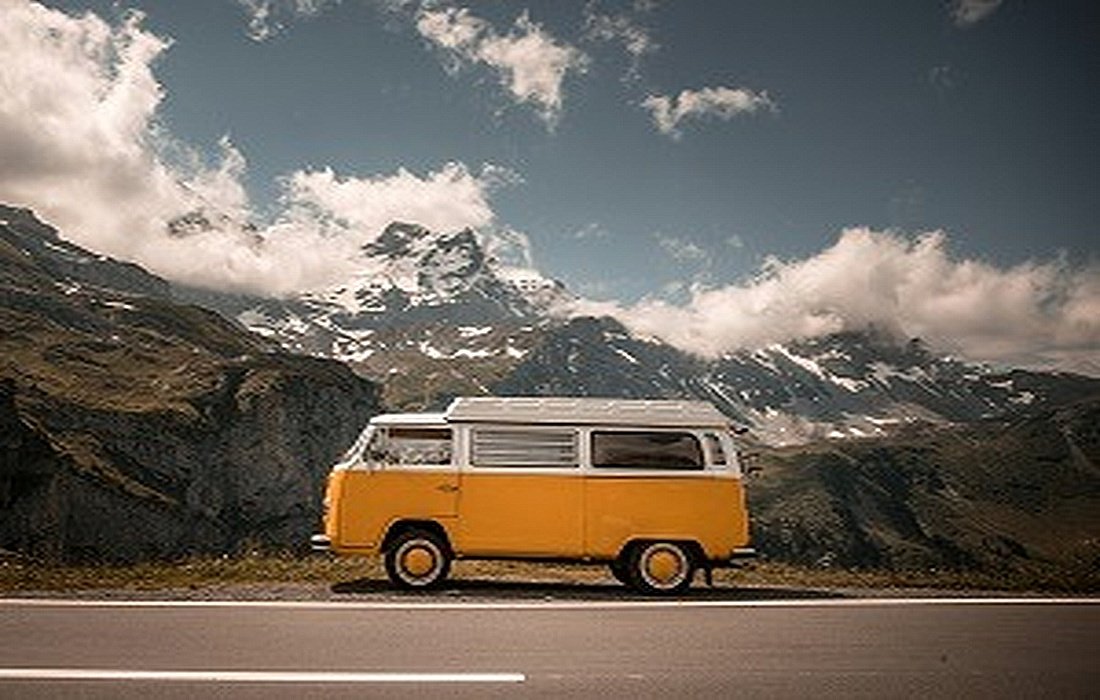In spring, when nature awakens from its winter slumber and the roads are filled with vibrant colors and fresh air, nothing fits better than a trip in a camper van. Unlimited freedom, stopping in nature, sleeping under a starry sky, and waking up to birds singing are just some of the pleasures of this type of travel. But to ensure this dreamy experience doesn’t turn into a hassle, you must prepare in advance. In this guide, with a full checklist and key tips, we help make your trip easy, safe, and unforgettable.
Complete Camper Van Technical Check
Before starting your spring trip with a camper van, a full technical inspection is essential to avoid roadside troubles and unexpected costs. Ensure that engine oil, brakes, and hydraulic systems are at proper levels, and that the main and auxiliary batteries are fully charged. Check the condition of the tires and spare, leak-free gas and water systems, functioning stove, refrigerator, air conditioning, lighting, solar panel, and power inverter. Don’t forget to check the air filter, belts, and water pump operation.
Route Planning and Parking Stops
For a smooth and stress-free trip, careful planning of the route and stopping points is necessary. Before departure, review the route map and consider refueling stations, rest spots, shops, and campsites. Using mapping apps can help you find suitable places to park and camp. One potential stopping point could be Socotra in Mashhad, as it has a beautiful nature.Socotra in Mashhadbecause it offers stunning natural scenery.
Weather Conditions Check for Destination and Route
When traveling in spring with a camper van, it’s very important to carefully check the weather conditions along your route and at your destination. Spring is known for rapid weather changes, so you might experience sunshine, rain, and sudden cold all in one day. Using weather apps can provide accurate hourly forecasts.

Backup Options for Sleeping Arrangements
Even if your camper van is equipped with a bed, heating system, and a suitable sleeping area, having backup sleeping options is a smart idea. In case of heating failure, space limitations, or emergency, carrying a lightweight tent, a four-season sleeping bag, or extra blankets can save you.
Get a Backup Battery (Leisure Battery) and Solar Panel
For trips outside equipped campsites, owning a leisure battery and solar panel is essential to use electrical devices like lights, fridge, or water pump without needing mains power. The battery stores energy, and the solar panel keeps it charged during the day. This setup is especially helpful on long trips or wild camping in nature. Remember to manage your energy use if you drive several days or the weather is cloudy.
Bring Enough Water and Separate Storage Containers
Water supply is one of the most important preparations when traveling in a camper van. Always carry a main water tank and an extra container (e.g., 10 liters) to monitor when to refill. Also, having 3 to 5 liters of drinking water for daily use is necessary.
Learn how to manage water consumption; for example, use less water when washing dishes or showering. If you’re visiting sightseeing spots, don’t forget to bring drinking water.Must-Visit Places in Mashhad in Spring
Safety Tips for Camping
To camp safely, especially during solo trips or wild camping, following safety tips is very important. Always park in well-lit, safe areas near other camper vans, and use warning signs like “equipped with CCTV.” In cities, camp under city lights near surveillance cameras. At night, leave the driver’s seat empty so you can move quickly in case of emergency.
Packing Items by Priority
In the limited space of a camper van, smart packing plays a key role in comfort. Items used daily, like clothes, food, chargers, light, and essential utensils, should be easily accessible. Seasonal clothes or less-used items, such as spare tools or warm clothing, are better stored in less accessible areas or under seats.
Using boxes, fabric baskets, and packing cubes helps organize better. This way, you save time searching and reduce fatigue caused by clutter and disorganization during the trip.

Having a Complete First Aid Kit and Essential Medicines
A fully stocked first aid kit is a vital part of any road trip, especially in nature or remote areas where access to medical centers can be difficult. The kit should include items like bandages, sterile gauze, adhesive tape, cotton, disinfectant solutions (like Betadine), burn ointments, painkillers, antihistamines, anti-nausea medications, fever reducers, and any specific medicines needed by travelers.
It’s recommended to carry a copy of personal prescriptions and check expiration dates before traveling. With proper preparation, you can effectively manage unexpected situations for yourself and your travel companions.
Set a Daily Budget for Fuel, Food, Entertainment, and Unexpected Expenses
One of the key factors for a successful camper van trip is setting a precise daily budget for costs like fuel and unforeseen expenses. Before departure, estimate typical costs, including route-based fuel prices and duration of stay, to determine your daily spending limit.
Financial planning plays an important role in maintaining peace of mind and making the most of your trip. Always keep an eye on your expenses and stick to your budget.Buy a Bus TicketConsider other alternatives like bus tickets as well.
With preparation, the destination road doesn’t need to worry you; it becomes part of the journey itself.
Spring trips in a camper van are a beautiful mix of freedom and relaxation, provided you’re fully prepared. From checking your van and packing smartly to budgeting, safety, and resource management, all these ensure a hassle-free and enjoyable journey. Once everything is ready, just start your engine and let the road and nature become your companions.







